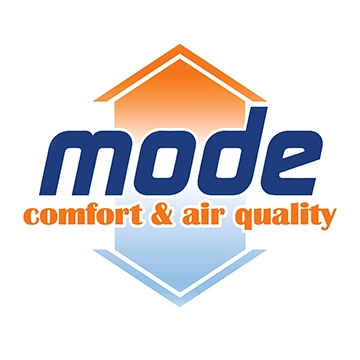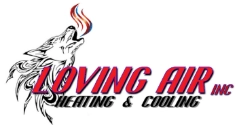Give us a call now for an immediate match with a local pro.
Click to Call(833) 824-3371(833) 824-3371
Last Updated: February 25, 2025
On average, 55% of the energy used in American homes is for heating and cooling, according to the Department of Energy. Energy costs in Richmond tend to be higher than in some other places, which means you're probably trying to save money on your bill.
Our guide to the top HVAC companies in Richmond can help you get your system into top shape, allowing you to keep comfortable while saving money.

Our Rating
User Rating
Reliable customer support
Clear pricing policy
Prompt service delivery
Informative resources
Free quote
Services Offered

Our Rating
User Rating
Informative resources
Clear pricing policy
Prompt service delivery
Free quotes
Reliable customer support
Services Offered

Our Rating
User Rating
Free quotes
Informative resources
Clear pricing policy
Services Offered

Our Rating
User Rating
Clear pricing policy
Reliable customer support
Free quotes
Informative resources
Prompt service delivery
Services Offered

Our Rating
User Rating
Reliable customer support
Free quotes
Clear pricing policy
Informative resources
Prompt service delivery
Services Offered

Our Rating
User Rating
Free quotes
Clear pricing policy
Reliable customer support
Informative resources
Services Offered

Our Rating
User Rating
Informative resources
Clear pricing policy
Services Offered

Our Rating
User Rating
Free quotes
Reliable customer support
Clear pricing policy
Prompt service delivery
Informative resources
Services Offered

Our Rating
User Rating
Free quotes
Reliable customer support
Prompt service delivery
Clear pricing policy
Informative resources
Services Offered

Our Rating
User Rating
Reliable customer support
Clear pricing policy
Free quote
Prompt service delivery
Informative resources
Services Offered
Today's Homeowner looks at dozens of datapoints on hvac companies to come up with our data-driven rankings. It's not possible for a company to pay for preferential treatment in our rankings. We look at the following key factors in determining who should top our list:
If your HVAC system is broken or getting old, it likely needs servicing or replacement from an HVAC company. Watch for these signs your system needs service:
If you notice any of the above, have a local HVAC technician inspect your system. They can identify problems and recommend whether repair or full HVAC replacement is the best course of action.
Your HVAC installation or maintenance cost varies depending on the type of unit. Common HVAC unit varieties include the following:
HVAC maintenance prices vary based on the specific services required. HVAC systems can be complex and potentially require several different services. Costs for typical jobs are as follows:
| HVAC Unit Type | Cost | |
|---|---|---|
| Split | $1,910-$4,868 | |
| Hybrid Split | $3,869-$7,129 | |
| Heat Pump | $2,996-$30,528 | |
| Packaged Heating and Air | $251-$418 |
Repairing or replacing your HVAC system when needed is important, but can be costly. Fortunately, there are steps you can take to reduce gradual wear and tear on your system.
| Service | Cost | |
|---|---|---|
| Filter Replacement | $63-$167 | |
| Condensor Cleaning | $1,254-$3,761 | |
| Thermostat Repair | $84-$209 | |
| Ductwork Cleaning | $401-$1,003 |
Knowing what makes a trustworthy HVAC company is vital for a smooth installation or repair. Hiring an experienced, credentialed HVAC contractor gives you confidence your system can provide reliable heating and air conditioning year-round.
Contact at least three HVAC providers for quotes. Explain the issues and have specialists visit to inspect your HVAC system if possible. Compare the companies' explanations, solutions, estimated costs, timeframes, and warranties. Avoid providers that pressure you or demand payment upfront.
When looking for an HVAC company, choose one with technicians that have the right training, licenses, and experience. In all states, HVAC contractors need to obtain a Section 608 Technician Certification from the Environmental Protection Agency (EPA). This certification is mandatory for any individual who helps "maintain, service, repair or dispose of equipment that could release refrigerants into the atmosphere." An individual must pass an exam (the type of exam depends on what kind of equipment they intend to work with) to be certified by the EPA. All other licensing requirements are handled by the state.
HVAC contractors in Virginia must have a contractor license with an HVAC specialization from the Department of Professional and Occupational Regulation. A valid Master HVAC Tradesman License (which has both education and experience requirements) is necessary to apply. A license can be class A, B, or C.
It’s important to understand what the work process is going to look like. For HVAC repairs, the company should list the particular parts that need replacement and why. Confirm that your technician will clean and test the full system afterward to make sure everything is operating properly. When replacing your HVAC, request that the company explain the new estimated installation time, energy efficiency, features, brand, and model. Before signing a contract, be sure you understand how your provider will determine the right system size for your home and what the price will be.
A trustworthy HVAC company will stand behind its repair services and equipment installations with a warranty. The longer and more comprehensive the warranty coverage, the better. Carefully review the fine print for each contractor and choose the company that provides the greatest protection within your budget.
Always get quotes for HVAC service in writing before work begins. A comprehensive quote should cover both materials and labor. Make sure you understand all terms before signing a contract.
You should have your HVAC system inspected twice a year. After completing their inspection, your technician will tell you what services are needed. You should also schedule an inspection if you notice new issues such as strange noises, unusual smells, or leaks. If your home has ductwork, you should have it inspected every few years.
Usually, it's smart to have your HVAC system inspected in the spring and fall, as technicians tend to be less busy at these times. This also helps make sure your system is prepared for the summer and winter, when it likely sees the most use.
You can save energy throughout the year by reducing the amount of work it takes for your HVAC system to maintain the temperature of your home. During all seasons, keep your thermostat as close to the outside temperature as you can, and try to adjust it only a few degrees at a time. You might also consider getting a smart thermostat.
Generally, HVAC installation or replacement takes one to three days for the entire system. Installing or replacing an air conditioning unit or a furnace can take as little as half a day or as much as two days. The exact amount of time will be based on factors like how large your home is, how easily accessible different parts of the system are, and whether your technician discovers any problems.
For a 2,000-square-foot home, you'll want a furnace that's between 50,000 and 80,000 BTUs (British thermal units).
For a 2,000-square-foot home, you'll also want an air conditioning unit with around 2.5 to 5 tons of capacity. In general, if your home is over 1,000 square feet, central air will be more effective than window air conditioning units.
There are several ways you can make your HVAC system more energy-efficient:
